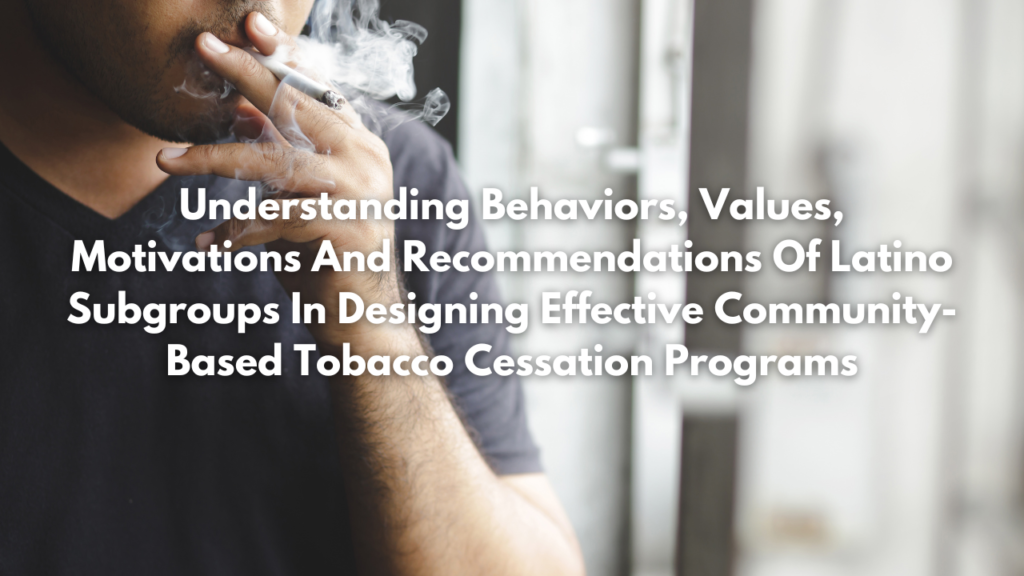
Centro Campesino, Inc., in collaboration with Hispanic Advocacy and Community Empowerment through Research (HACER) and Dr. Michael Rodriguez from the Educational Psychology Department at the University of Minnesota, carried out an 18-month Developmental Community Academic Research Award project entitled Understanding Behaviors, Values, Motivations and Recommendations of Latino Subgroups in Developing Effective, Community-based Tobacco Cessation Programs. This research worked to unify Latino health promoters, bilingual/bicultural community-based researchers, academic researchers, and key stakeholders in a collaborative effort to better understand tobacco use and tobacco cessation among Latino subgroups in Minnesota. Our asset-oriented approach intended to shift from the current paradigm of focusing on negative behaviors associated with tobacco use, to a paradigm that focuses on positive behaviors associated with not using tobacco among Latino adults in south central Minnesota.
Although efforts have been made to tailor tobacco cessation interventions to Latinos as a broad ethnic group, little has been done to understand how targeting specific Latino subgroups can improve the success of these interventions in Minnesota. The primary outcome of this project is to increase knowledge of Latino subgroups as they relate to tobacco use and cessation and thereby inform the development of more effective, targeted tobacco cessation programs.
The main organizational host for this developmental research project is Centro Campesino, Inc., a nonprofit, community association with the mission to improve the lives of migrant workers and rural Latinos and to create a strong southern-Minnesota, Latino voice for justice. Centro Campesino’s Promotores de Salud program trains rural Latino and migrant agricultural workers to serve as lay health educators in their own communities, neighborhoods, and workplaces.
The academic partner for this project is Dr. Michael Rodriguez, Associate Professor of quantitative methods in education at the University of Minnesota. He has a doctorate in educational psychology from Michigan State University and has researched the importance of asset-oriented approaches in working with Latino populations. For this project, he assisted in the development of an appropriate asset-oriented research methodology and facilitated the IRB process.
HACER is the only Latino-specific, constituency-led research and advocacy organization in Minnesota. HACER’s mission is to provide the Minnesota Latino community the ability to create and control information about itself in order to affect institutional decisions and public policy. As a community partner in this project, HACER provided expertise both in the area of Community-Based Participatory Research and in qualitative research methodologies.
